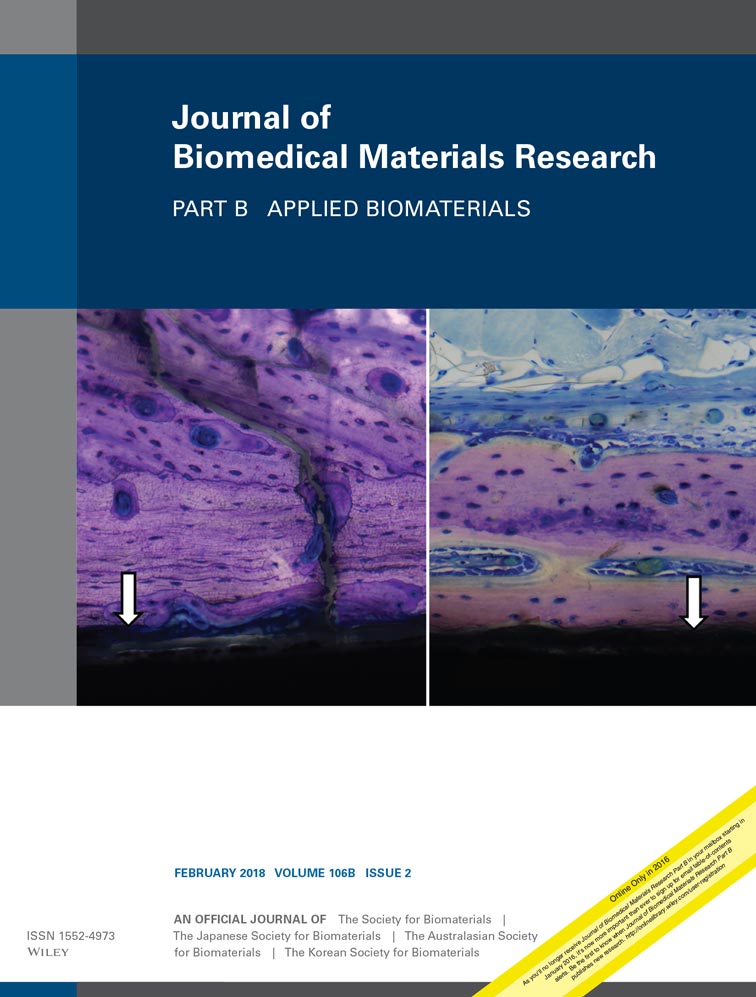Electrospun biodegradable microfibers induce new collagen formation in a rat abdominal wall defect model: A possible treatment for pelvic floor repair?
The work took place: Department of Gynecology and Obstetrics, Aarhus University Hospital, Research Laboratory of Biochemical Pathology, Institute of Clinical Medicine, Aarhus University, Institute of Pathology, Aarhus University Hospital, Denmark.
Abstract
Half of the female population over age 50 years will experience pelvic organ prolapse. We suggest a new approach based on tissue engineering principles to functionally reconstruct the anatomical structures of the pelvic floor. The aim of this study is to investigate the mechanical performance and effect on collagen and elastin production of a degradable mesh releasing basic fibroblast growth factor (bFGF). Implantation of biodegradable mesh with or without bFGF in their core has been conducted in 40 rats in an abdominal wall defect model. Samples were explanted after 4, 8, and 24 weeks, and tested for mechanical properties and the composition of connective tissue. The study showed an increase in mRNA expression for collagen-I (p = 0.0060) and collagen-III (p = 0.0086) in the 4 weeks group with bFGF. The difference was equalized at 8 and 24 weeks. No difference was found at any time for protein amount for collagen-I, collagen-III, and fibronectin. The amount of collagen decreased from 4 to 24 weeks but the fraction of collagen increased. The maximal load of the newly formed tissue showed no effect of bFGF at any time. Exclusively, histology showed a limited ingrowth of collagen fibers after 4 weeks with bFGF but signs of elastin fibers were seen at 24 weeks. The investigation showed that a biodegradable mesh promotes tissue formation with a promising strength. The mesh with bFGF did not represent any advantage on either long or short term in comparison to the mesh without bFGF. © 2017 Wiley Periodicals, Inc. J Biomed Mater Res Part B: Appl Biomater, 106B: 680–688, 2018.




